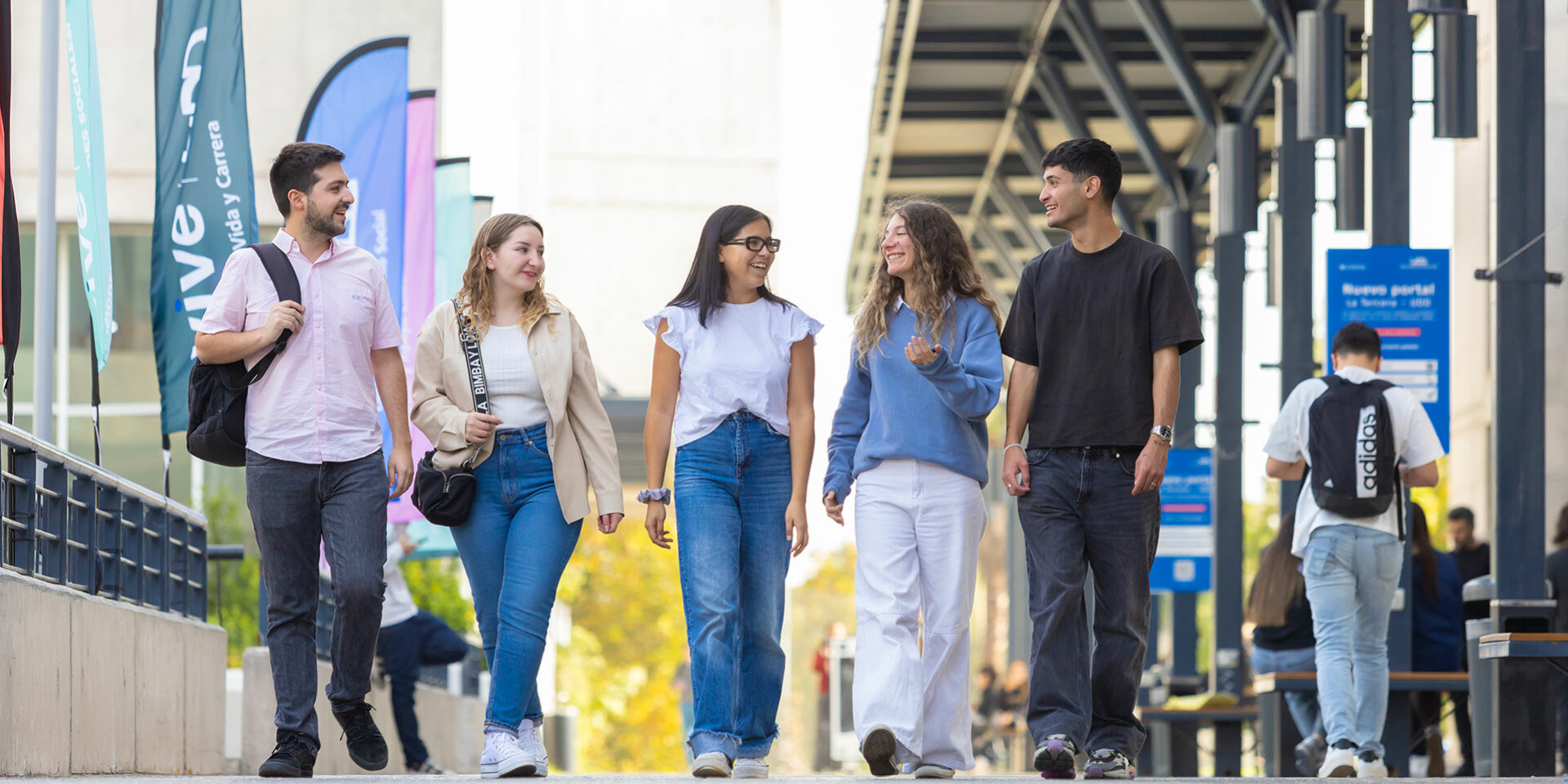
In 2020, UDD completed three decades since it began its activities in the Bio-Bío Region. It was one of the first regional private universities in the country. It began with one program of study and 100 students in 1990 and a powerful project to become a prime academic institution that would personalize higher education and emphasize the entrepreneurial formation of its graduating students.
BELOW ARE SOME OF THE MAIN STAGES THAT UDD HAS COMPLETED IN THESE 30 YEARS:
Foundational stage. The University opened its doors in 1990 in Concepción, offering the Business Engineering program. Five years later, it was offering five majors, an associate degree and a postgraduate certification program, soon becoming an institution recognized in the region for its quality project, capable of attracting good professors and students.
Autonomy. In 1997, it was awarded full autonomy by the Superior Council of Education, becoming the first private autonomous university in a region. By then it had 1,700 students and had just created its first master’s program, the MBA of the School of Economics and Business.
Growth and consolidation. In 1998, the University Board decided to broaden and consolidate the University’s project by opening a campus in Santiago with 6 undergraduate programs and 3 master’s programs. Added to this was the creation of the first research center, the international accreditation of the MBA, and 5 years later, the construction of the San Carlos de Apoquindo Campus, now called the President Ernesto Silva Bafalluy Campus.
University development. UDD progressed and consolidated a structure to provide support to its growth and to facilitate self-regulation. This was in answer to a greater sophistication involving not only a higher number of majors and growing skilled professorial staff, but also the strategic decision in 2000 to extend the University’s project to the area of health care.
Expanding networks. UDD’s closeness to the external environment led to a wide variety of ties and instances of international collaboration on all levels. Among other things, this resulted in more than 200 agreements now existing with foreign institutions. Of particular note is the relationship begun in 2006 with Babson College, in 2010 with Stanford Technology Ventures Program, in 2012 with Queen’s University of Canada, in 2017 with Macquarie University and UC Davis, and in 2018 with The George Institute for Global Health in association with the University of New South Wales in Australia that set up its Latin American campus in UDD’s Research Square.
Development focused on postgraduate programs and research. Since its foundation, UDD’s purpose has been to develop undergraduate and postgraduate programs. In 1994, it began to teach the first Postgraduate Certification in Business Administration and Management (PADE) that in 1997 led to the Master’s in Business Administration (MBA). For the next decade, in line with the UDD project plan, the postgraduate area grew significantly and expanded to all areas of the University. The Postgraduate Building was inaugurated in 2012 on the President Ernesto Silva Bafalluy Campus and in 2014, the first two doctorate programs began so as to continue with the formation of advanced human capital and strengthen research. This increased in 2017 to four doctorate programs, all currently accredited. The Research Square was inaugurated in 2017 in Las Condes, where 3 doctorate programs are offered that are taught in Santiago. Research developed substantially, surpassing 20 research centers at the University, with a considerable increase in the quantity and quality of academic productivity. The area was accredited in 2016.
Complex, flexible and innovative University. In recent years, UDD has been able to become a more complex university, positioning itself in the system of higher education through increasingly higher standards in the main indicators by which institutions of this level of development are measured. It has progressed in academic productivity, interdisciplinary collaboration, the number of doctorate programs, ties to national and international external institutions, attracting outside funding and participating in public debate, to name a few areas. UDD’s particular vocation is for the culture of innovation and the ongoing transformation to build a university of the future. This has been achieved by simultaneously maintaining the seals that have set it apart from the beginning – entrepreneurship and leadership, ethics and public responsibility – and its flexible management style, with a great ability to detect and adapt to the multiple changes in the environment.
Recent years have been challenging for the entire national educational system because of changes in regulations, the system of admission and financing, new ways to approach learning and trends on the job market, all in the context of major technological changes and growing social demands. Added to this scenario was the world health crisis in 2020 that brought to light the University’s installed capacity to ensure the continuity of all of its academic and managerial activities while safeguarding quality, as explained below. The University has thus maintained the sustainability of its long-term project while remaining faithful to its mission and values and gaining a growing recognition in the educational environment.